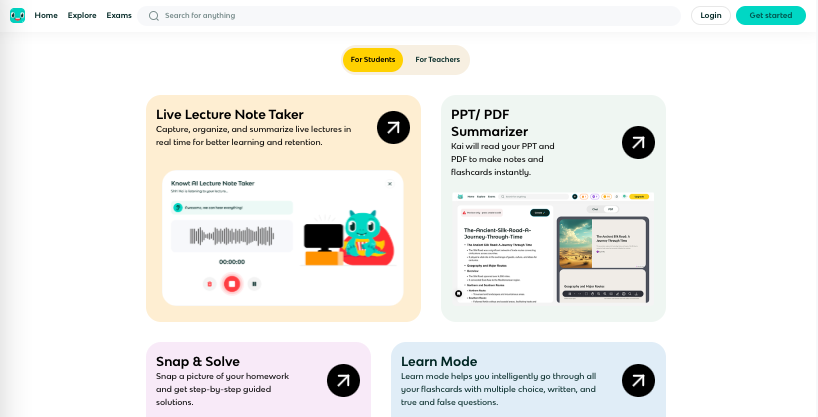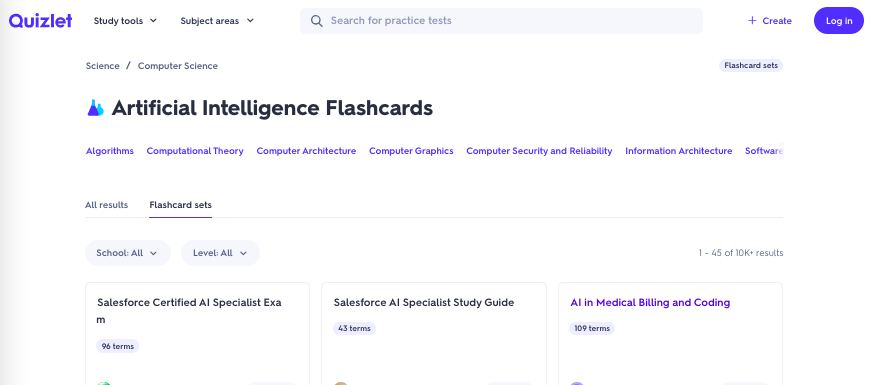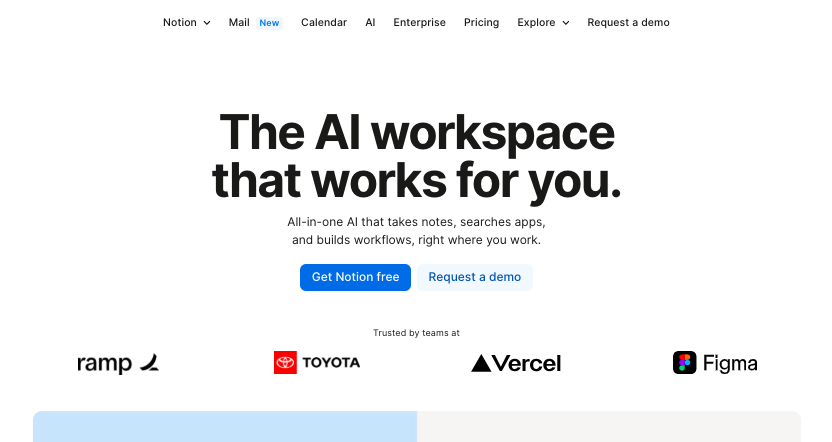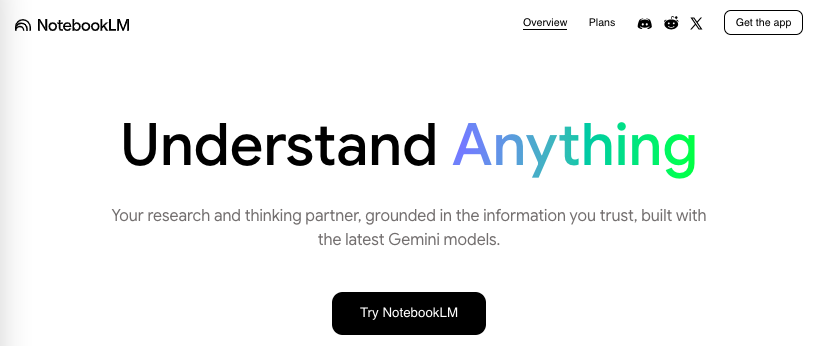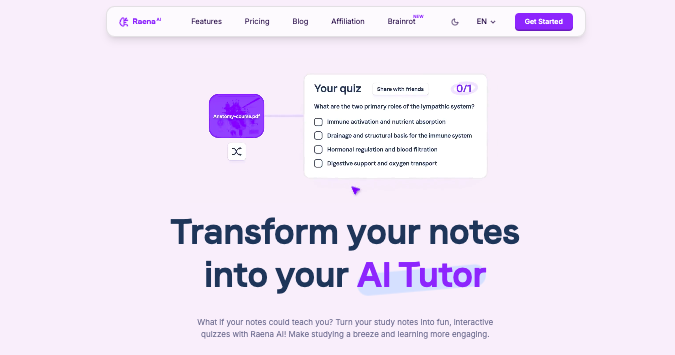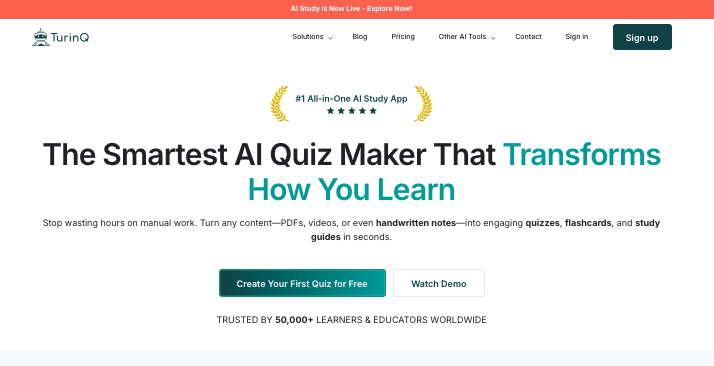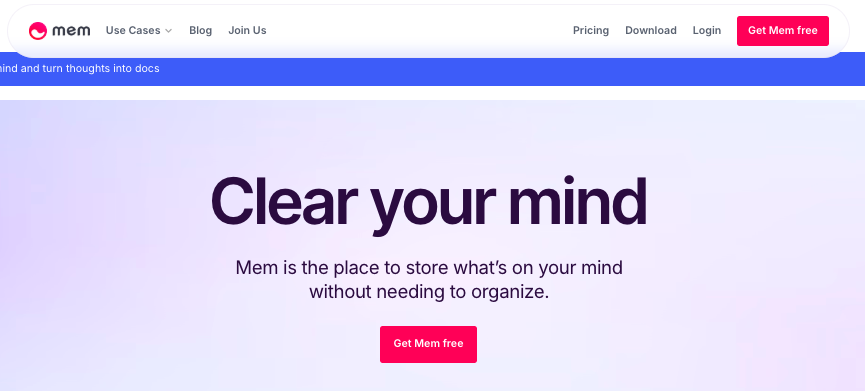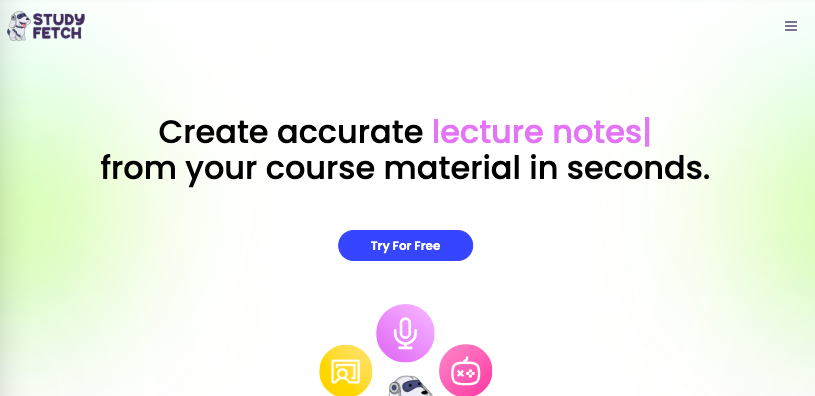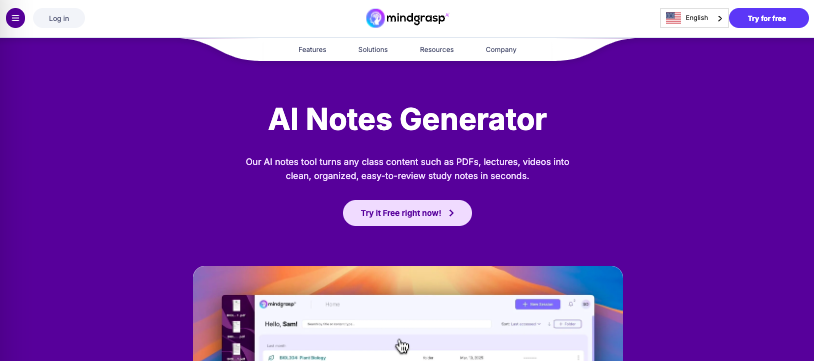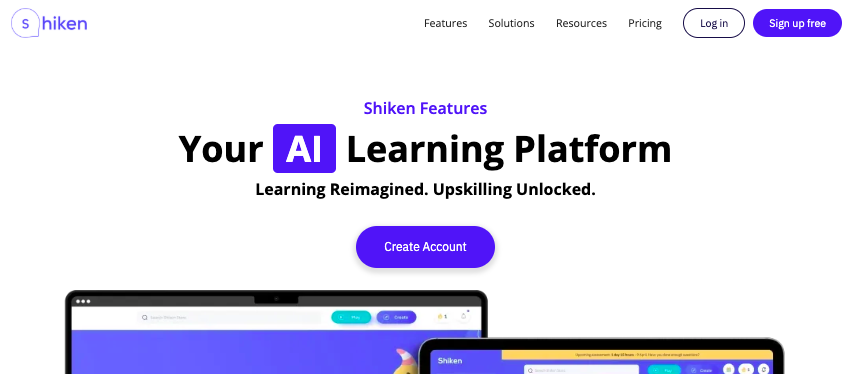TurboLearn AI is one of the newer AI study assistants that helps students or keen learners process lectures, videos, PDFs, and more.
It automatically generates study aids like summaries, flashcards, quizzes, diagrams, and other handy learning tools.
The AI tool promises to save time by turning raw content into digestible, organized study materials. Students who have hours of lectures or piles of notes often find it helpful.
But in practice, there are some trade-offs. The quiz questions are sometimes off. The free plan limits are frustrating. Even the interface isn’t quite perfect for everyone.
Depending on your learning style, you might even prefer tools with different features. That’s why it’s a great idea to explore alternative tools.
Below are ten of the best alternatives to TurboLearn AI that can help you learn the way your want.
Take a look.
Best TurboLearn AI Alternatives
1. Knowt
If you like TurboLearn AI for its mix of flashcards, summaries, and adaptive review, Knowt is one of the strongest competitors.
It lets you upload your notes, slides, PDFs, or even lecture videos, and it creates study guides, quizzes, and flashcards automatically.
The tool supports spaced repetition and has multiple study modes (learn, match, practice test) so you aren’t just reading but practicing in different formats.
What makes Knowt particularly nice is that many of its features are generous even in the free version, especially for flashcards and quizzes, so you don’t always need to pay.
It also syncs across mobile and web, which helps if you switch devices. For someone who wants a reliable, polished tool for active recall and summary generation, Knowt is almost a no-brainer alternative.
Also Read: Best AI Lesson Plan Tools For Teachers
2. Quizlet
Quizlet has been around longer. Lately, it has added a plenty of AI study tools to its armoury.
It still offers traditional flashcards, games, and collaborative sets, but newer additions include adaptive practice quizzes, AI tutor-style feedback, and tools to convert notes to learning sets.
Quizlet’s user base is huge, so there are lots of pre-made sets and study materials already available that might match your subject.
Though some of its best features are locked behind paywalls, free users can save time by using well-made flashcards by others.
If you want broad subject coverage with a familiar UI and many learning modes, Quizlet is a solid pick.
Check Out: Best Tech Tools For Teachers
3. Notion AI
Notion’s AI features are less specialized for quizzes and flashcards, but where it shines is integration and versatility.
With Notion AI built into your workspace (notes, databases, documents, etc.), you can write, summarize, search, brainstorm, and organise all kinds of study materials in one place.
If you like a single hub for projects, notes, schedules, and studying, Notion gives you that. Its AI can help you transform content you already have (notes, transcripts) into more useful forms (summaries, highlight extraction, etc.).
The learning curve is a bit steeper if you try to deeply customize everything, but once set up it becomes very powerful.
For someone who values flexibility and wants more control over how their materials are structured, Notion AI is a worthy alternative.
Also Read: Best Productivity Tools For Teachers
4. NotebookLM
NotebookLM is more recent but very promising. It focuses on letting you upload your own documents and having grounded, traceable explanations and study aids.
Because it’s built to avoid letting the AI hallucinate (by grounding responses in the source materials), it’s reassuring for learners who want more academic correctness.
It also supports collaborative tutoring and active learning; for example, asking follow-up questions, generating study guides from your uploaded text, and more.
If you’re someone who works with technical or dense readings (papers, textbooks), and you want accuracy plus interactivity, NotebookLM tends to do well.
Its downside might be cost or features being more locked unless you pay, and perhaps less polish in flashy UI or mobile friendliness compared to some competitors.
5. Raena AI
Raena AI brings some unique strengths.
If your main goal is turning your existing notes into interactive quizzes, flashcards, and mind maps while getting concise summary sheets, Raena is designed for that flow.
It combines the passive reading/studying style with more active recall tools, which helps retention.
It also supports chat or AI tutor-style interaction: you can ask clarifying questions on topics, so it becomes more than just “read-and-review.”
If visualization helps you, Raena has better tools than many others for that. On the flip side, the number of features outside those core ones might be fewer.
Having said, Raena is excellent when it comes to quizzes, flashcards, summaries, and interactive learning.
Also Read: Great Websites Every Student Should Know
6. TurinQ
If you’re frustrated by TurboLearn’s free-plan limits, TurinQ is designed to address that.
The free plan in TurinQ is more usable. You can build your own question bank and generate unlimited quizzes from what you already have. That gives consistent practice without being forced to upgrade early.
It also offers pedagogical enhancements like aligning quiz questions to Bloom’s taxonomy so quizzes aren’t always just memory recall but also analysis. This is along with the built-in spaced repetition for longer-term retention.
For learners who care about cost, depth, and effective memory features, TurinQ is one of the best alternatives to TurboLearn.
7. Mem
Mem is another promising tool, especially for people who want a mix of note-taking, spaced repetition, and recall.
While it may not always convert videos automatically into quizzes, its strength is its clean UI, cross-device sync, good search features, and reminder or memory-tracking system.
If you’re someone who wants your notes to be more alive and usable over time rather than just archived, Mem tends to do well.
It also has better support for linking ideas, which helps with subjects that are conceptually connected.
8. StudyFetch
StudyFetch is an exciting AI-powered learning platform that takes your lecture recordings, PDFs, notes, or slide decks and transforms them into bite-sized study guides, flashcards, and quizzes in minutes.
Its real strength lies in its LectureGPT feature, which automatically pulls out key points, definitions, and tricky concepts, so you don’t have to comb through pages of text.
It also creates practice questions based on your materials, which makes revision much less painful.
The interface is refreshingly clean and easy to use, especially for college students juggling multiple courses.
StudyFetch also tracks your progress over time and adapts the questions it shows you based on what you’ve already mastered.
If you’re the kind of learner who likes personalized practice without hours of prep, this tool can save you loads of time. It’s like having a personal teaching assistant living in your laptop.
9. Mindgrasp
Mindgrasp uses AI to turn any kind of content, articles, videos, textbooks, or notes into instant study aids.
It automatically generates summaries, question banks, and flashcards while highlighting the most important concepts from your sources.
What makes it stand out is its ability to handle long or technical content without getting overwhelmed, which makes it perfect for dense subjects like science or law.
You can also interact with its AI tutor to ask follow-up questions and clarify tricky points, which feels like chatting with a knowledgeable friend.
The tool is especially handy if you’re often pressed for time and just need the essential bits without reading everything.
It’s also compatible across devices, so you can study on the go. If you want an AI sidekick that does the heavy lifting for comprehension, Mindgrasp is a fantastic option.
10. Shiken AI
Shiken AI is an interactive learning platform that uses AI to create personalized quizzes, flashcards, and bite-sized learning modules from your study materials.
It’s designed to make learning feel less like a chore and more like a game, thanks to its gamified elements like streaks, points, and leaderboards.
The AI analyzes your progress to identify weak areas and adapt the difficulty of questions in real time, which keeps you challenged without feeling overwhelmed.
You can also chat with its built-in AI tutor to get instant explanations on tricky concepts or problem areas.
Shiken supports multimedia content too, so you can add images or audio clips to your flashcards for better memory retention.
It’s especially useful if you thrive on interactive, engaging study sessions rather than static reading.
Conclusion
At the end of the day, there is no one “perfect” alternative to TurboLearn AI. The best tool for you depends on how you like to learn, what content you usually study, and which features matter most.
If I were you, I’d try two or three of these tools with your actual materials for a week each and see which one feels smoother, more accurate, and more motivating.
Once you find a habit you like, the rest becomes easier.
Enjoyed the post?

